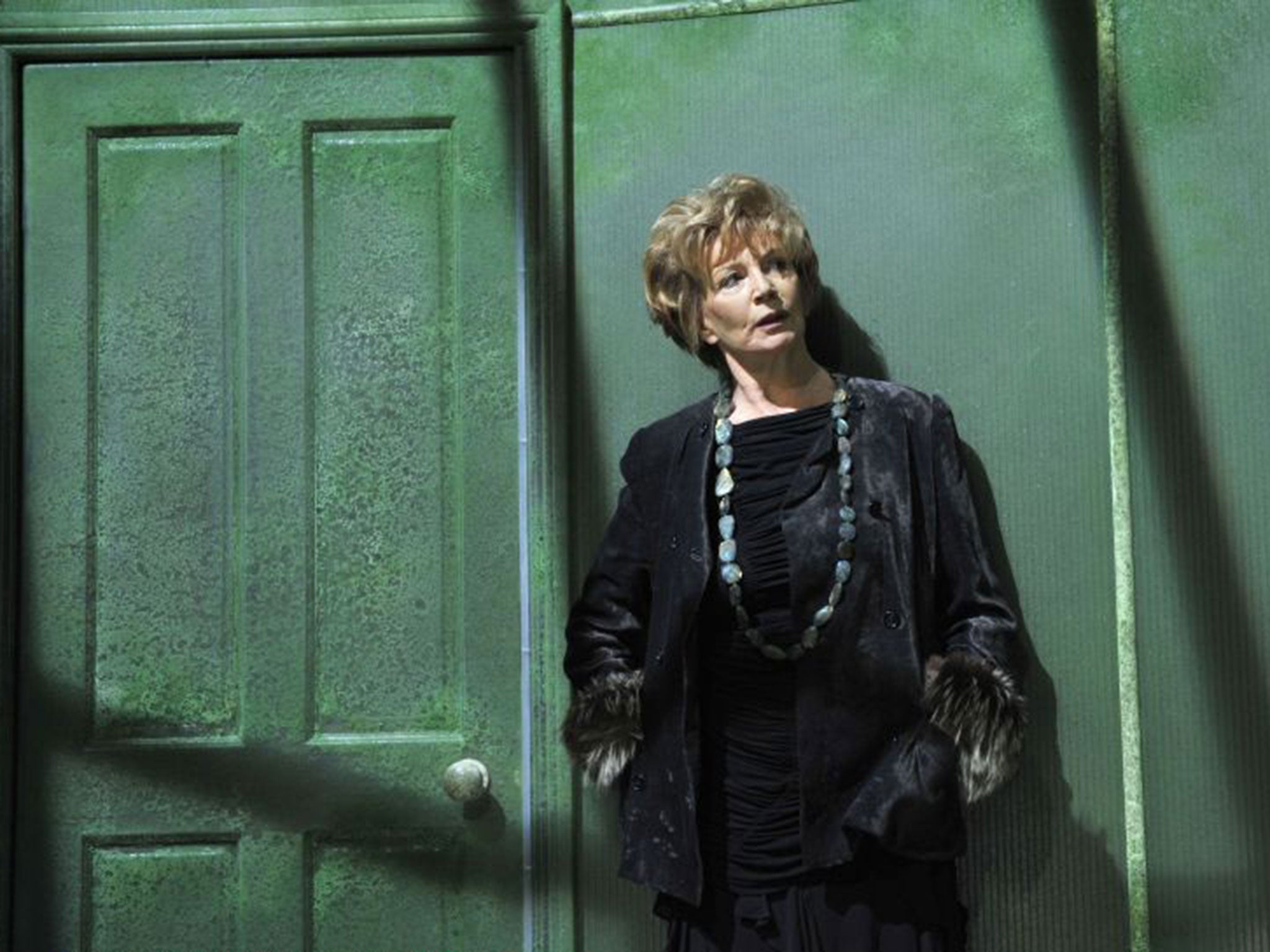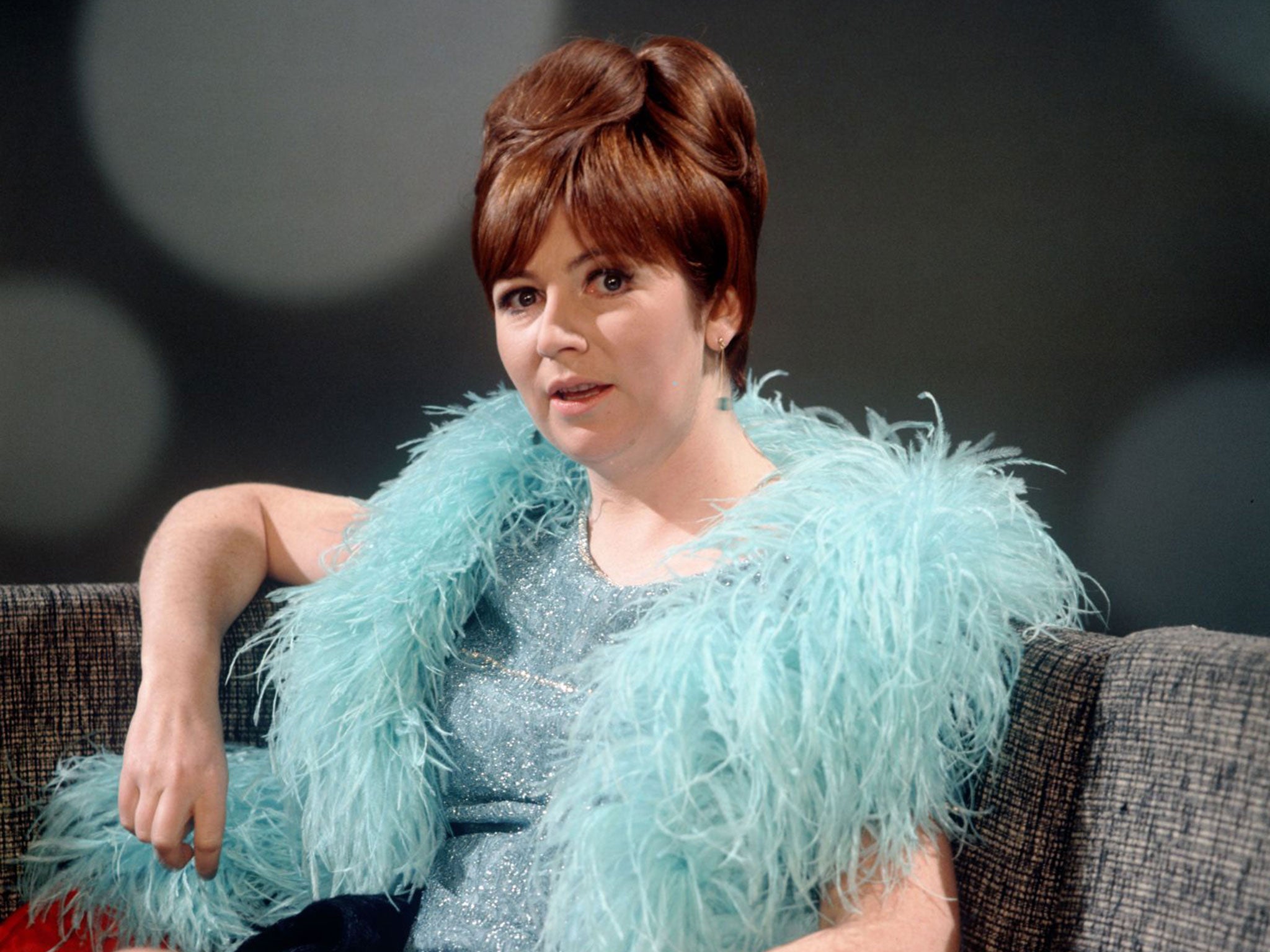Edna O'Brien: 'I had to grow old before they'd give me credit'
At 83, her stock has never been higher. It's about time, the former bad girl of Irish literature tells Cole Moreton

Where are the leaders who can inspire us? That's what Edna O'Brien would like to know. "The over-riding self-importance! I despair!" says the great Irish writer and social commentator, railing against modern politicians. "If you compare how they speak now with how Churchill and Disraeli spoke … language was used more carefully, more pertinently. Now everything is so …." She ponders what to say, a literary grande dame about to receive a lifetime achievement award at the age of 83 for the power and precision of her words. Having found the right one, she speaks slowly, in a low voice that shudders with disgust. "So … ordinary!"
That is the last word anyone would use to describe this remarkable novelist, short-story writer, poet, playwright and force of nature, whose books were banned and burnt in Ireland in the Sixties but became hits everywhere else. She swung through London having dalliances with Richard Burton, Marlon Brando and Robert Mitchum, and Sean Connery once failed to stop her taking LSD. Paul McCartney sang her children to sleep.
She survived to become a serious public figure and a bit of a legend: Edna O'Brien the brilliant, forthright redhead standing up for the right of women everywhere to think and feel and say and write about it whatever they wanted to. After 20 works of fiction she has been hailed by Philip Roth as "the most gifted woman now writing in English". And O'Brien has just become the second winner of the Charleston-Chichester Award for a Lifetime's Excellence in Short Fiction. She is to receive it the morning after our meeting, at the Small Wonders literary festival at Charleston, East Sussex, spiritual home of the Bloomsbury group. The previous winner was William Trevor. "Ireland is creeping its way into Sussex," she says. "Or maybe marching."
O'Brien was a panellist on the first Question Time, in 1979. Having sparred with politicians all her working life, weren't they always shallow, vain attention-seekers? "The sense of self-promotion is far more evident now, but any cosmic or spiritual sense is absent. That is to do with the vulgarisation of our society."
The prospect of another war in Iraq disturbs her, having marched against the last one. "I met wonderful people. My feet were better then. I can't understand why Tony Blair doesn't say, 'I did wrong.' I think it would be his spiritual salvation." Again, the language disturbs her. "Shock and awe? How dare they use those words. That is for a musical on Broadway with chorus girls." Again, a pause before a tremulous pay-off. "Oh, they're bastards!"
Edna O'Brien is certainly entertaining company, even at the dying of the day in a quiet Sussex garden, where we take tea as the birds settle into the trees around us. She is tiny and elegant, in a long striped skirt and matching scarf. She runs her finger along her lips as she talks, like a question mark. Her low, deliberate voice is weirdly reminiscent of an Irish Margaret Thatcher, a comparison she would surely hate. Tired after being driven from her home in Knightsbridge, she is revived by a cup of Earl Grey.

After all this time, do prizes mean much? "I think they do. One is only human. It is nice to be appreciated. I actually have not been the winner of many prizes. Never a Booker, never a Costa. Don't know why. Naturally, I am aware of it. I may have difficulty getting up and down steps but I am aware of everything …."
She touches my hand and fixes me with a stare as if to say, watch it. The Charleston-Chichester Award means a lot to her. "I am very delighted. I am also delighted that shorter fiction gets attention. Great and good writers have often written better short stories than they have longer novels. It is just more intense."
O'Brien's reputation has soared in recent years, particularly after winning the prestigious and lucrative Frank O'Connor Short Story Award in 2011, for her collection Saints and Sinners. "I think I had to get old. I had to have my hip surgery before they would give me the credit." A new generation of critics is unencumbered by the baggage of the past, she says. "The reissue of my book Night was reviewed jubilantly in The Irish Times the other day, by a young woman. If she had cared to look at how it was reviewed the first time … if I were sensitive then, I would have taken a razor to myself."
We are a few miles from the river where Virginia Woolf waded in with pockets full of stones to end her life. O'Brien has been compared to Woolf, most recently by The New York Times. "I don't resemble her, but I do admire her. The only resemblance is that I am also slightly mad."
They would have got on, she says. "I am more down to earth. I come from soil and landscape that is in every line I write. But she is a very intense writer and I am a very intense writer." Not that she thinks that is a good thing these days, commercially speaking. "People are less inclined, in the jagged and rackety world that we live in, to want that kind of intensity. I would lay you a bet, if Virginia Woolf were alive today and published To The Lighthouse – unless it won a prize – it would sell 3,000 copies. That is the truth. That is the reality of writing now."
O'Brien was lucky enough to become a star during what she now regards as "a golden age" for professional authors. She emerged from a troubled childhood in County Clare and a constricting marriage in London to publish The Country Girls in 1960, giving voice to the feelings and sexual experiences of young women in the repressive theocracy of Ireland at that time. The authorities hated it, as did many people in her home village. "It was thought that I had disgraced everyone. Also that I was not entitled to a voice. Oh, the things they said."
Elsewhere, the prospect of saucy country maidens – and the dazzling prose – made The Country Girls and the books that followed best-sellers. She became famous at a time when female writers were very often patronised or insulted by their male rivals. One critic quoted her estranged husband in saying all her talent resided in her knickers. They wouldn't dare say things like that now, would they? "No, they wouldn't." So that battle is won then? "Good. I'm glad it's over. I'm just sorry there are deep scars. But I think there are nine or 10 battles still to fight."
Women are still taken less seriously as writers than men, she insists. "For the most part, even very intelligent men are more disposed to liking a book by a man. They feel a book by a woman may be a little too precious, like Norman Mailer saying to me, 'You're too interior.' Men feel more at home with work by men and women feel more excited at praising work by men." She spots my raised eyebrows. "They do. A great number of them. A male writer generates more … what's that thing that people take? Viagra. Cultural Viagra."
Still, she is Edna O'Brien. There are many women here, in Ireland and in the United States, who would want to tell her their lives have been changed for the better by her writing, her attitude and her refusal to be bowed or taken less seriously.
"You never know the full extent of that," she says. "I get beautiful letters from people, very often when they are in a bit of a pickle. So yes I have done something, I suppose, to help. The way great writing has helped me. I revere so many writers, without them I wouldn't be able to get the auld sentences going. So it's like a daisy chain, but you don't know where you are on the chain."
Everybody missed the point of her memoir, though, she says. Yes, she wrote about wild parties with Marianne Faithfull and nights with Marlon Brando (who was "chaste") and Robert Mitchum (who was not), but the point was she had to give all that up to write. "That thing of treating the writer like a famous boxer or a rock star has harmed writers, because one of the ingredients most essential for writing is that you have to be solitary. You can't be gregarious. You can't do both. The brain won't take it. That is why poor Mrs Woolf went off her rocker. Too many people, too much outside life."
She suffers in the same way. "If I see too many people, I lose myself. I lose my truth. And my dedication to what I have done for 55 years and want to do for whatever time is left," she says. "I also become secretly impatient, because of all the gifts in the world that I value, after good health, imagination is the thing I value most. Well, you don't get glasses of imagination out there at parties." There is a world of difference between the legend and the reality. "She is a figment," says O'Brien. "I am lucky that I have not yet been in a lunatic asylum. I would not call myself stable. Maybe some writers are. Maybe they are not the writers I want to be."
She touches my hand again and says it is time to say goodbye. "Or else I can tell you are going to have me talking all night."
So back she goes to solitude, silence and the reading she must do in preparation for a new novel. For Edna O'Brien, now as ever, it is the words that matter most of all.
twitter.com/@colemoreton; colemoreton.com
Curriculum vitae
1930 Born in Tuamgraney, County Clare, Ireland.
1941 Educated at Convent of Mercy, Loughrea, while her mother worked as a waitress in New York.
1946 Enrolled as a student in Dublin.
1950 Qualified as a pharmacist.
1954 Married Irish writer Ernest Gébler. Had two sons, Carlo and Sasha, before moving to London. Began writing after becoming influenced by James Joyce's books.
1960 Her first book, The Country Girls, was published.
1964 Marriage to Gébler ended. The Lonely Girl and Girls in Their Married Bliss were published but later banned in Ireland for their sexual content.
1979 Appeared as panel member on first edition of Question Time.
1981 Wrote first play Virginia, about Virgina Woolf, which was staged in the West End and New York.
1995 Won European Prize for Literature for House of Splendid Isolation.
1999 Published a biography of James Joyce.
2009 Given Lifetime Achievement award in Irish Literature.
2012 Her memoir Country Girl won Non-Fiction category at Irish Book Awards.
Joe Krishnan
Join our commenting forum
Join thought-provoking conversations, follow other Independent readers and see their replies
Comments
Bookmark popover
Removed from bookmarks